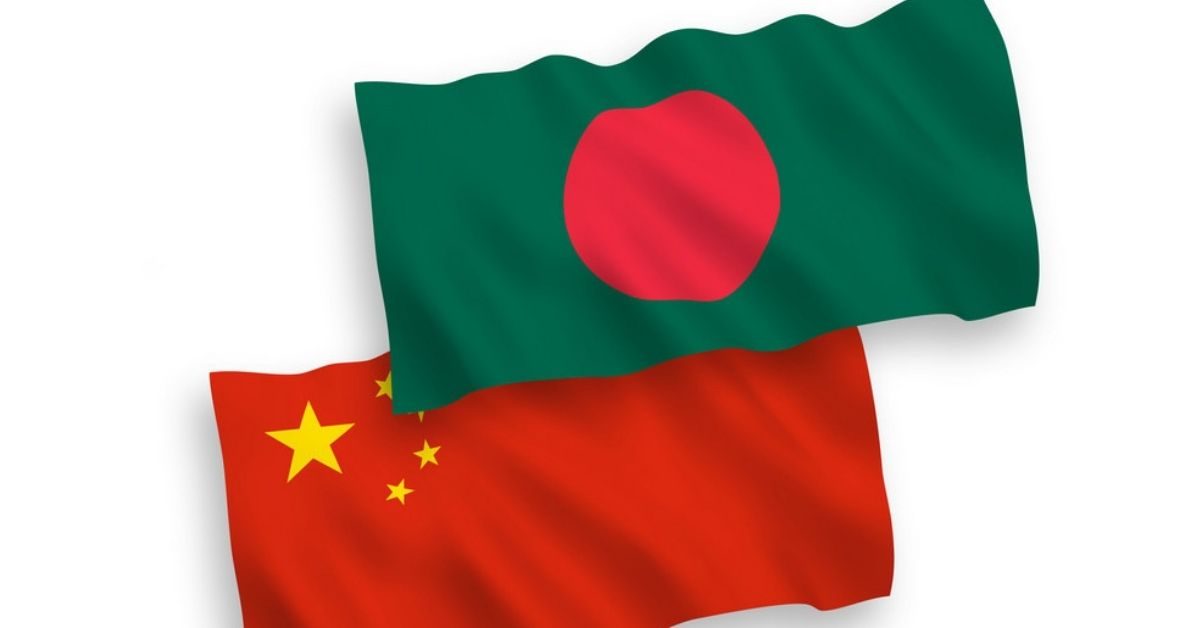Source: Daily Industry
At the same time, initiatives have been taken to join China’s CIPS modeled on SWIFT for international transaction messaging. One of the objectives of these initiatives is to pay the loan of Rooppur nuclear power plant through China.
Those concerned said that Bangladesh is unable to repay the loan taken for the initial work of Rooppur nuclear power plant project due to US sanctions. That is why the country owes about $400 million to Sonali Bank by opening a ‘Scrow’ account and depositing it there. The country is financing 90 percent of the contract price or $1,138 million in this project to be implemented with the financing of Russia. Principal repayment of the project will start from March 2027. Repayment of Russia’s debt is contemplated by opening an account with China’s central bank and joining the country’s trading system. Earlier in April last year, a protocol agreement was signed to pay Rooppur’s dues through the People’s Bank of China instead of directly to Russia. However, ‘Swift’ is the only way to send foreign currency transaction settlement messages from Bangladesh to any other country. As a result, if SWIFT informed the United States about the payment in this way, the payment was not made due to the fear of jeopardizing international trade.
It is known that a delegation of three members of Bangladesh Bank visited the country on the invitation of China from March 5 to 10. At this time, they held a separate meeting with the country’s central bank to discuss opening accounts and joining The Cross border Interbank Payment System (CIPS), a means of sending transaction messages.
Bangladesh Bank spokesperson and executive director Mejbaul Haque told that Bangladesh Bank has accounts with the central banks of most of the major business partners. Bangladesh Bank does not have an account with the country’s central bank even though Bangladesh has the largest trade with China. However, after the yuan became the official currency of China, the opportunity to directly import and export has been created. One can settle LC in Yuan if one wants to do so. Now the central bank of the two countries can directly settle, this decision has been made.
According to Bangladesh Bank sources, currently Bangladesh Bank has accounts in the central banks of 11 countries including Federal Reserve, Bank of England, Switzerland, Japan, Australia, India, Italy, France. Apart from this, transactions are settled through ‘Nostro’ accounts of various commercial banks. HSBC is mostly used to settle transactions with China. Although there are accounts in many central banks, most transactions in Bangladesh are done through the Federal Reserve Bank of New York, the central bank of the United States. Most of the foreign exchange reserves are also kept there. Bangladesh till now uses Society for Worldwide Interbank Financial Telecommunications (SWIFT) as the only medium for sending messages.
Those concerned said that outside the United States and Europe, some countries with large economies have been trying to reduce the influence of the dollar and start transactions in alternative currencies. Russia and China are the most advanced in this field. Recently, India is also adopting various methods to strengthen its currency. Since 2016, Russia has been trying to connect Bangladesh to the Financial Messaging System (SPFC), its central bank’s own transaction messaging system. Earlier, Bangladesh Bank gave the opportunity to open LC in Chinese currency from 2018. Again, from July last year, a system of direct settlement of transactions with India in rupees has been introduced. However, there is no response in Chinese currency or Indian rupee transactions. Mainly due to the widespread acceptance of the US currency, the country’s dominance in the global banking system and the lack of good alternatives to SWIFT, other currencies are not gaining popularity. Most importers and exporters are not interested in trading in currencies other than the dollar, despite the efforts of various governments.
A major part of Bangladesh’s total imports comes from China and India. However, exports to both countries are very low. In contrast, about 85 percent of the total export earnings come from the United States and the European Union. According to the data of Bangladesh Bank, in the fiscal year 2022-23, imports from China were 1 thousand 783 million dollars. Which is 26.10 percent of total import. In contrast, exports to the country were only $68 million. In the previous financial year, the country had imported $2,880 million, which was 26.50 percent of the total imports. However, export earnings came in at less than a billion dollars.
Syed Mahbubur Rahman, managing director of Mutual Trust Bank told that trying to introduce an alternative currency is a good initiative. But the difference in our trade with China makes it doubtful how effective it will be. However, it will be effective if many countries can work together to settle transactions in alternative currencies rather than limiting it to just two countries.
An official of Bangladesh Bank told that China used to use its own language in exchanging messages for international transactions. All in all, the account could not be opened till now. Discussions of trading in alternative currencies have intensified recently due to the extreme dollar crisis.
Those concerned said that the increase in global demand after the corona virus and the Russia-Ukraine war put a lot of pressure on the dollar. Most countries, including the United States, have raised interest rates to control inflation. As a result of this, a lot of dollars from different countries of the world went to the United States. As a result, importers have to buy the dollar which was at Tk 84 in August 2021 at Tk 117 to Tk 119. A few days ago, however, there were more. At the same time, the foreign currency reserve which was over $48 billion at that time has decreased to $19.98 billion.







